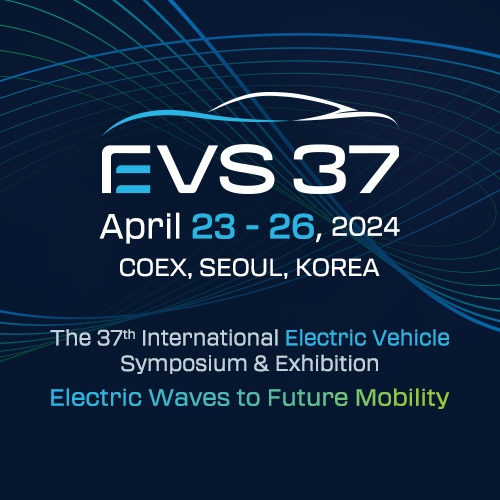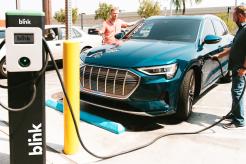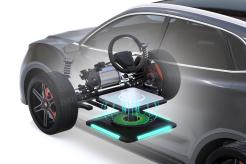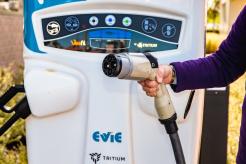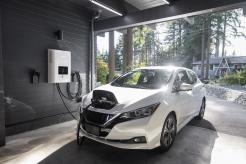So, you’re considering installing an EV (electric vehicle) charger at your home or business. You’ll have many factors to consider, but chief among them: how much will it cost to have one installed?
The national average cost for EV charging station installation is between $1,000 and $2,500. Still, this cost varies based on your region, the type of station you buy, and whether it is portable or hardwired into your home. If you’re planning to buy an EV charger to service your own vehicle, keep in mind that many EVs come with a Level 1 charger that you can easily plug into a typical 120-volt outlet. However, you can upgrade to a faster charging station, too.
So with that in mind, let’s break down the factors that will influence how much installing your EV charging station will cost.
Level 1 vs. Level 2 Chargers
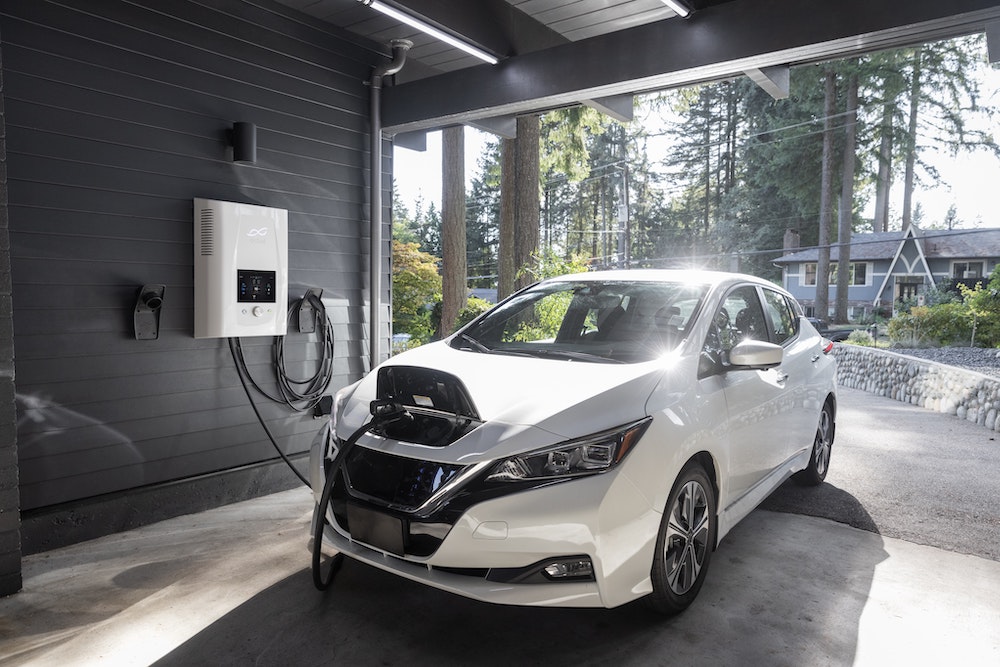
First, let’s break down the difference between Level 1 and Level 2 EV chargers. Level 1 EV chargers use your home’s existing electrical outlets and are typically much more affordable than Level 2 chargers. They can take up to 10 hours for a full charge, so they’re great for overnight charging.
Level 2 EV chargers require professional installation and are hardwired into your home or business. They provide faster charging times, usually around four to eight hours. However, they also have a higher price tag than Level 1 chargers.
Prices for Level 1 home EV chargers range from $300 to more than $1,000, not including installation costs. Prices for Level 2 chargers range from $700 to more than $1,800 for homes and up to $12,000+ for commercial installation. These prices depend on various factors, including the need for adaptors, wi-fi connectivity, weather protection, and energy needs.
Will Your Charger Be Hardwired or Plug-In?

(Photo by Steve Johnson on Unsplash)
If you decide to go with a Level 2 charger, you’ll need to determine if it will be hardwired or plug-in. If you opt for a plug-in unit, the only installation costs associated with the charger would be for the electrician to run power from your home’s breaker box to the outlet where the charger will be plugged in. In this case, you’ll most likely need access to a 240-volt electrical outlet.
On the other hand, a hardwired unit requires a more extensive installation and is generally more expensive. In addition to running power from your home’s breaker box, an electrician must attach the charger to your home or business’s wiring system, which may require additional hours of labor and materials for installation.
Costs of Accessories
Other accessories for operating your EV charging station could contribute to your upfront costs, including surge protectors, extension cords, mounting brackets, and other supplies. Depending on the state of your home or business’s existing electric system, you may also need to install additional wiring or outlets to accommodate installing your EV charger.
Cost of Permits and Labor

(Photo by Gabriel Alenius on Unsplash)
Electricians may charge by the hour or at a flat rate. Your region’s laws will determine whether permits are necessary for EV charger installation, and the cost of these permits can vary greatly depending on your locality. It is generally wise to contact a licensed electrician for an estimate before installing your charging station to ensure you get the best deal.
Depending on your jurisdiction, you may also need to consider the cost of permits, which could add a few hundred dollars to the project cost.
Ongoing Costs To Anticipate After Installing Your EV Charger
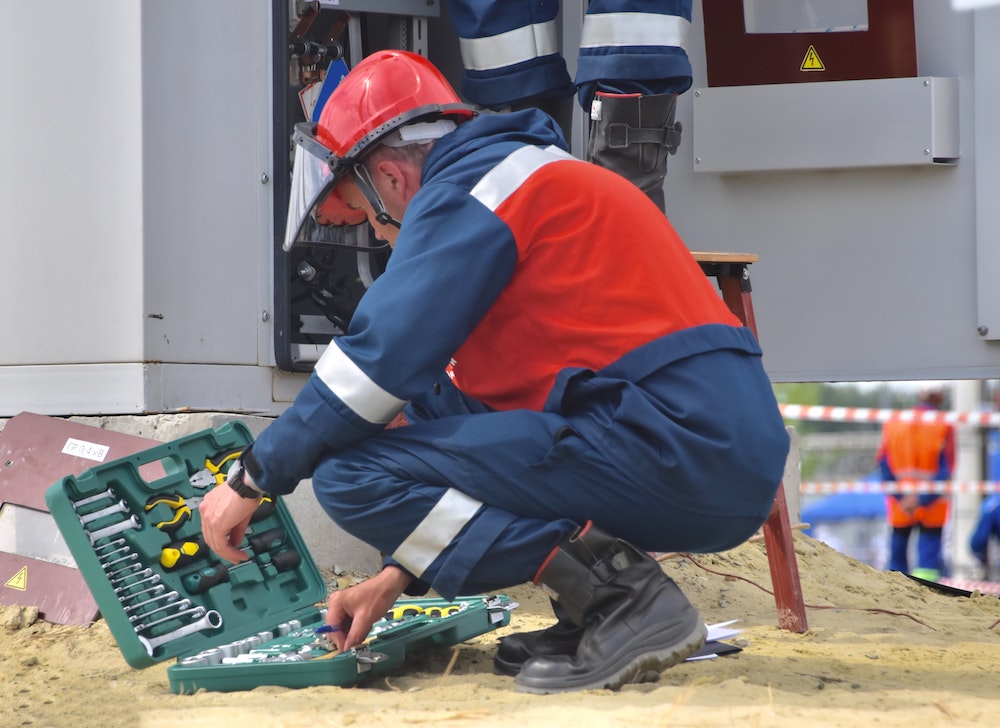
(Photo by Антон Дмитриев on Unsplash)
Owning an EV charging unit also involves some ongoing costs. Some manufacturers charge a small monthly fee to use their cloud-based systems, while others levy fees if you want to share your charger with the public.
Most wall units have a warranty and require minimal or no ongoing maintenance. You may have to pay for repairs if your charger malfunctions or needs an upgrade, so it’s a good idea to check the warranty included with your unit.
You will also have to pay for your EV charger’s electricity unless you use solar panels or other renewable energy sources. The cost of electricity varies depending on where you live and how much you drive, but it can be a significant expense to consider when budgeting for your EV charging setup.
Finally, it’s important to remember that even the best-maintained EV chargers will eventually need replacing. As the EV industry continues to evolve, newer charging units will likely become available with more features and better performance. If you plan to keep your EV for a long time, consider how much the cost of replacing your charger may change over its lifetime.
Ways To Reduce Your EV Charger Installation Costs
You may reduce the cost of installing your EV charger by taking advantage of applicable tax credits or rebates. Many states and utility companies offer rebates and incentives to install a home charger. Check your state and local government websites for more information. You may also qualify for federal tax credits that reduce the overall cost of installation.
Additionally, you can save money if you shop around and compare different models and quotes. Many suppliers offer discounts for purchasing multiple charging units at once, so if you plan to install more than one station, look for deals to help lower the installation cost.
Regardless of upfront costs, it’s important to remember that purchasing an EV charger for your home or business will likely become a profitable long-term investment. Installing an EV charger can help you save money in the long run by reducing your reliance on expensive fuel. If you make your charger publicly available, you’ll find plenty of ways to monetize your charging station. With proper research and planning, you can be sure that your charging station will be a great addition to your home or business for years to come!
Are you interested in learning more about EV charging infrastructure? Join us at the upcoming EV Charging Summit and Expo.

